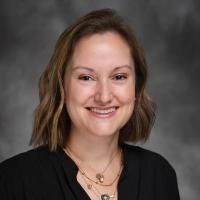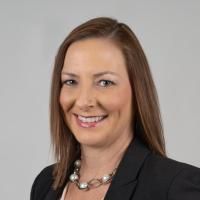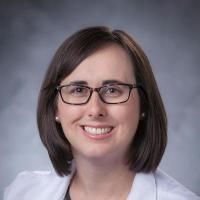Association Between Hearing Handicap and Life-Space Mobility in a Patient Population.
Date
2023-06
Journal Title
Journal ISSN
Volume Title
Repository Usage Stats
views
downloads
Citation Stats
Attention Stats
Abstract
Purpose
The purpose of this study was to evaluate the association between self-reported hearing handicap and life-space mobility utilizing the Life-Space Questionnaire (LSQ). Life-space mobility reflects how an individual moves through their daily physical and social environment, and the role of hearing loss in life-space mobility is not fully understood. We hypothesized that those with higher self-reported hearing handicap would be more likely to demonstrate restricted life-space mobility.Method
A total of 189 older adults (M age = 75.76 years, SD = 5.81) completed a mail-in survey packet including the LSQ and Hearing Handicap Inventory for the Elderly (HHIE). Participants were categorized into one of three groups ("no/none," "mild/moderate," or "severe" hearing handicap) according to HHIE total score. LSQ responses were dichotomized to either "nonrestricted/typical" or "restricted" life-space mobility groups. Logistic regression models were performed to analyze life-space mobility differences among the groups.Results
Logistic regression results demonstrated no statistically significant association between hearing handicap and LSQ.Conclusions
The results of this study indicate that there is no association between self-reported hearing handicap and life-space mobility as evaluated using a mail-in version of the LSQ. This counters other studies that have demonstrated that life space is associated with chronic illness, cognitive functioning, and social and health integration.Type
Department
Description
Provenance
Subjects
Citation
Permalink
Published Version (Please cite this version)
Publication Info
Oliva, Allison, Jessica S West, Sherri L Smith, Ryan J Huang and Kristal M Riska (2023). Association Between Hearing Handicap and Life-Space Mobility in a Patient Population. American journal of audiology, 32(2). pp. 360–368. 10.1044/2023_aja-22-00052 Retrieved from https://hdl.handle.net/10161/28648.
This is constructed from limited available data and may be imprecise. To cite this article, please review & use the official citation provided by the journal.
Collections
Scholars@Duke

Jessica Sayles West
Jessica is a medical sociologist who specializes in research on hearing loss, aging, and health disparities over the life course. Jessica’s work has described the “spillover” effects of hearing loss on health outcomes for both individuals and those close to them, as well as sociodemographic disparities in the onset of and life expectancy with hearing loss. Her research, which leverages both population-level data and electronic health record data, has appeared in the Journals of Gerontology, Social Science & Medicine, Ear and Hearing, and other leading journals in medical sociology, hearing, and aging research.
Jessica received a B.A. from the University of Michigan in Social Anthropology (dual Sociology/Anthropology concentration) followed by an M.P.H. in Sociomedical Sciences with a certificate in Public Health Research Methods from Columbia University’s Mailman School of Public Health. She subsequently received an M.A. and Ph.D. in Sociology with a focus in Medical Sociology and Demography at Duke University. She then completed an NIA T32 Postdoctoral Fellowship at the Duke University Aging Center under the mentorship of Matthew E. Dupre, Ph.D. (Population Health Sciences) and Sherri L. Smith, Au.D., Ph.D. (Head and Neck Surgery & Communication Sciences).

Sherri L Smith
Dr. Smith's core research focuses on improving the assessment and treatment of hearing loss in older adults. Specifically, her work centers on comparing the effectiveness of current hearing interventions, developing new, innovative clinical tools, and examining alternative service-delivery approaches that help patients reach their individual hearing goals and improve their quality of life.
Dr. Smith also collaborates with multi-disciplinary teams to better understand the impact of hearing loss on other health conditions and services. Current projects involve understanding the impact of hearing loss on surgical outcomes in older adults, determining the mechanisms that may explain the independent association between hearing loss and falls in older adults, and comparing different models of hearing screenings for older adults in primary care settings.

Kristal Mills Riska
My research program’s overarching goals are to improve the diagnosis and management of dizziness, falls, and vestibular disorders. Her research focuses in three strategic areas: 1) improving the identification of Benign Paroxysmal Positional Vertigo in primary care settings to enable timely access to cost-effective treatment, 2) characterizing the role of vestibular function and rehabilitative strategies in post-concussive/mild traumatic brain injury related dizziness; and 3) identifying and understanding the mechanisms that mediate the association between falls and hearing loss in an effort to develop interventions that will modify falls risk in the hearing impaired population.
Unless otherwise indicated, scholarly articles published by Duke faculty members are made available here with a CC-BY-NC (Creative Commons Attribution Non-Commercial) license, as enabled by the Duke Open Access Policy. If you wish to use the materials in ways not already permitted under CC-BY-NC, please consult the copyright owner. Other materials are made available here through the author’s grant of a non-exclusive license to make their work openly accessible.
